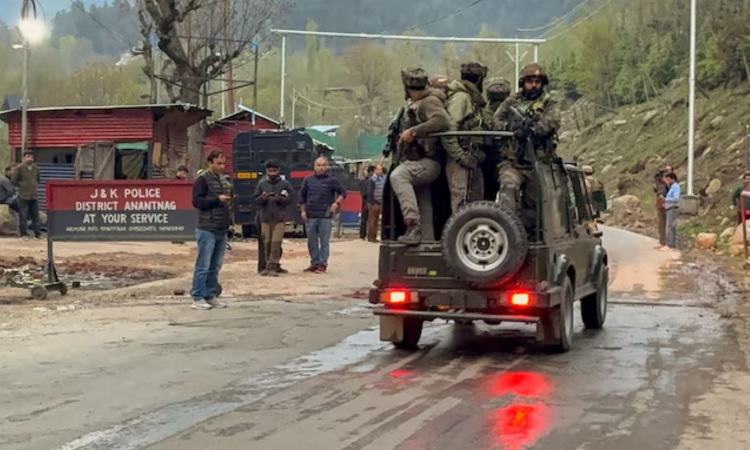Editorial: Self goals in Kashmir
The exercise is designed to satisfy the popular lust for vengeance, and to inflict collective punishment on families and local communities.

Pahalgam terror attack (PTI)
The whole gamut of responses of the BJP-led Union government since the April 22 terror killings in Pahalgam in Kashmir can be summarised by two adjectives: ‘performative’ and ‘retributive’. They fit like a glove to the ongoing demolition of houses allegedly belonging to terrorists in the Valley. The exercise is designed to satisfy the popular lust for vengeance, and to inflict collective punishment on families and local communities.
The trigger for this rage was cocked by none other than the Prime Minister when he said in an election-style speech in Bihar that “the time has come to raze whatever is left of the terror haven”. Since then, the authorities in the Kashmir Valley have demolished—without declaring themselves, without serving notices, without putting out any formal communiques—a dozen buildings supposedly belonging to 10 terror operatives at three places. Only two of these men are suspects in the killing of 25 tourists and a local man last week. Their families have been rendered homeless by the demolitions and their neighbours have had to bear collateral damage to their own properties.
The Union Government is using these summary actions to deflect attention from questions about the security oversights and intel failures that left the door ajar for the April 22 killings. Why wasn’t security tuned up ahead of US vice-president JD Vance’s visit to India? Was there no intel of terrorist activity at the review meeting held by Amit Shah on April 8? Why wasn’t Omar Abdullah invited to that meeting? And having kept the chief minister out of the loop, was the Home Minister justified in blaming the local authorities for allowing tourist activity at popular locales? Why didn’t the police, which reports to the Lt Governor, raise an alarm then?
Leaks to the media in Srinagar claim that these demolitions are necessary to “destroy the entire terror ecosystem” in Kashmir. Sorry, that’s a specious argument. By the government’s own claims, that objective was supposed to have been achieved in the six years since Article 370 was abrogated in August 2019. The fact is that demolitions— be they in Kashmir, Madhya Pradesh, Uttar Pradesh or Maharashtra—have become a substitute for due process and a means to wreak collective punishment on a community euphemistically called “the terror ecosystem”. It violates the 1949 Geneva Convention and defies an unambiguous verdict of the Supreme Court that held summary demolitions as unlawful and a breach of the right to shelter under Article 21. Internationally, demolitions, when wielded by Israel as a weapon against the Palestinians, have been treated as a war crime.
India’s far-right tends to be inspired by Israel’s impunity and would love our government to be a wannabe Tel Aviv. Social media patriots are likely to be impressed by the sight of Kashmiri houses being blown up. But India needs to take a more sober view. Israel can perhaps afford to be a thug state because it has the protection of the US. India cannot and should not be Washington’s feral pet. For all the affection lavished on M/s Trump and Vance, the Pahalgam incident has not managed to break the India-Pakistan hyphenation in the eyes of the US. More importantly, collective punishment of Kashmiri communities will fritter away the sympathy generated in the Valley for the unfortunate victims of Pahalgam.



